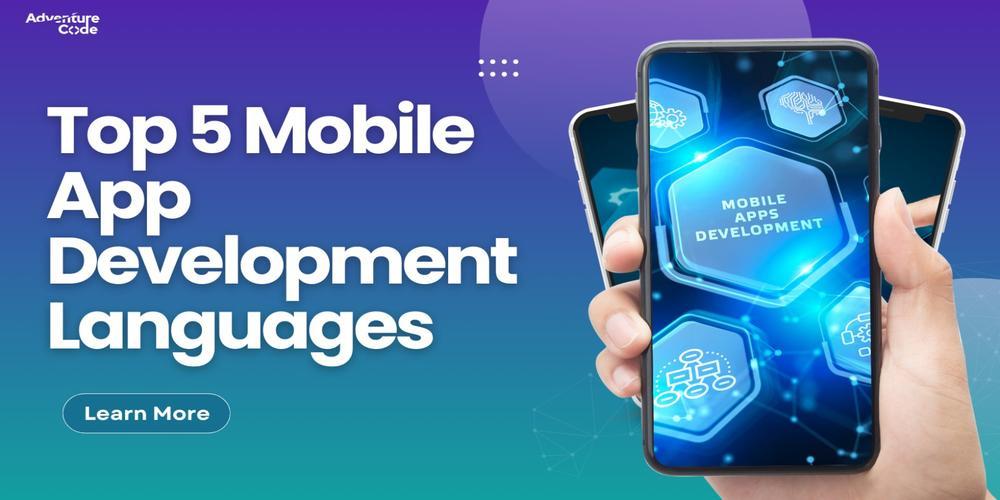The world of mobile app development is evolving rapidly. Whether you're building for iOS, Android, or using cross-platform app development frameworks, staying equipped with the right tools is essential. From debugging to UI design, today's developers rely on a wide range of software to build seamless, high-performing applications. In this blog, we explore the top 10 tools that every mobile app developer should consider using in 2025 to stay ahead of the curve.
1. Android Studio
As the official IDE for Android development, Android Studio offers a robust environment that features intelligent code editing, real-time testing, and emulator support. It's a go-to platform for developers looking to build and optimize apps for the vast Android ecosystem. With tools like the Layout Editor and APK Analyzer, development speed and debugging efficiency are significantly improved.
2. Xcode
For Apple app development, Xcode is the essential IDE. It offers everything from Swift and Objective-C programming support to iOS simulator, Interface Builder, and comprehensive performance analysis tools. Xcode ensures smooth iOS app development, allowing developers to create, test, and submit apps seamlessly within Apple's ecosystem.
3. Flutter
One of the most popular mobile app development tools is Flutter, which was created by Google. With a single codebase, it allows you to develop aesthetically pleasing, high-performing apps for iOS and Android. With its fast hot-reload feature and customizable widgets, Flutter is ideal for developers seeking rapid prototyping and a consistent UI across platforms.
4. React Native
Another strong player in cross-platform development, React Native uses JavaScript and React to create native mobile apps. It combines the performance of native apps with the ease of web development. With a vast community and third-party plugin support, it's perfect for teams who want flexibility and faster deployment.
5. Firebase
Google's Firebase is a comprehensive backend-as-a-service (BaaS) that provides a suite of features like real-time databases, cloud storage, authentication, and crash reporting. It streamlines app development by offering a one-stop solution for backend needs, helping developers deliver apps with powerful backend functionality without managing servers.
6. Visual Studio Code
VS Code is a lightweight yet powerful code editor that supports multiple programming languages and is widely used for mobile app development. With extensions for Flutter, React Native, and other platforms, it helps developers write and debug code with ease. Its Git integration and IntelliSense capabilities significantly boost productivity.
7. Postman
Testing APIs is a crucial part of mobile development. Postman simplifies API testing and documentation, allowing developers to create, test, and manage APIs more efficiently. Whether you're working on third-party API integration or custom-built endpoints, Postman ensures seamless communication between your app and backend services.
8. Appium
For those focused on mobile app testing, Appium is an open-source tool that supports both Android and iOS platforms. It allows automated testing of native, hybrid, and mobile web applications. With its cross-platform capabilities, Appium reduces testing effort and enhances test coverage, ensuring bug-free releases.
9. Sketch or Figma
Significant app development isn't just about functionality; it's about delivering an exceptional user experience. Sketch and Figma are leading UI/UX design tools that help developers and designers collaborate on user interface design in real-time. They allow seamless prototyping, interactive mockups, and easy developer handoff, making them essential for a polished user experience.
10. Bitrise
Bitrise is a continuous integration and deployment (CI/CD) technology designed especially for mobile applications. By automating the build, test, and deployment procedures, it reduces errors and saves developers a significant amount of time. With customizable workflows and integrations with GitHub, Slack, and more, Bitrise helps streamline your delivery pipeline.
Conclusion
In today's competitive landscape, mobile app developers must constantly evolve and embrace tools that enhance productivity, streamline processes, and deliver high-quality apps. These 10 must-have tools cover everything from IDE environments and design tools to testing platforms and CI/CD pipelines, providing a comprehensive toolkit for modern development needs. Whether you're a seasoned professional or just starting, integrating these tools into your workflow can significantly enhance the efficiency and success of your mobile applications.
As mobile development trends continue to evolve in complexity and innovation, staying current and investing in the right technologies will help you stand out in a competitive market. Select the tools that best align with your goals, and let them enhance your journey in the world of mobile development.







